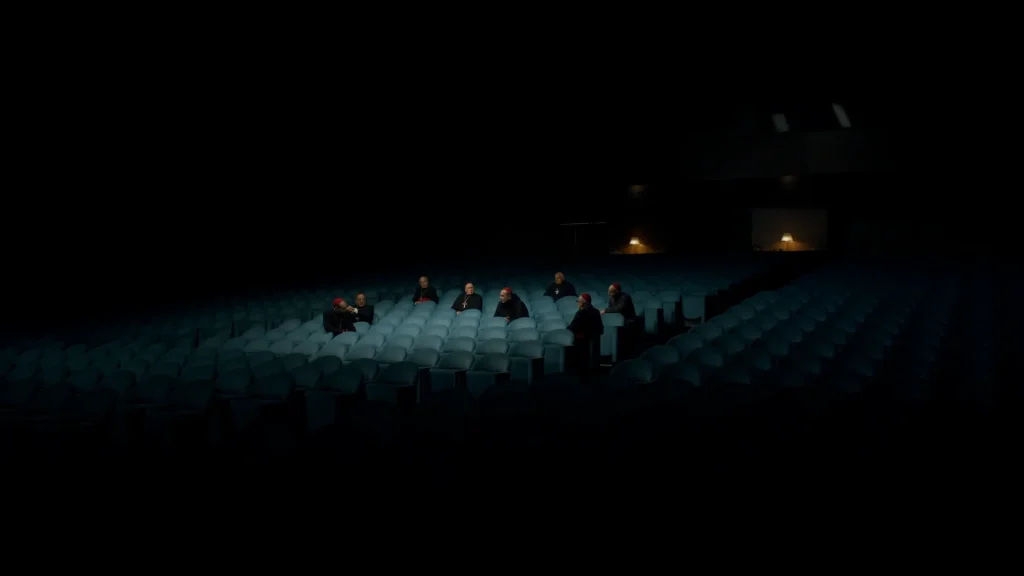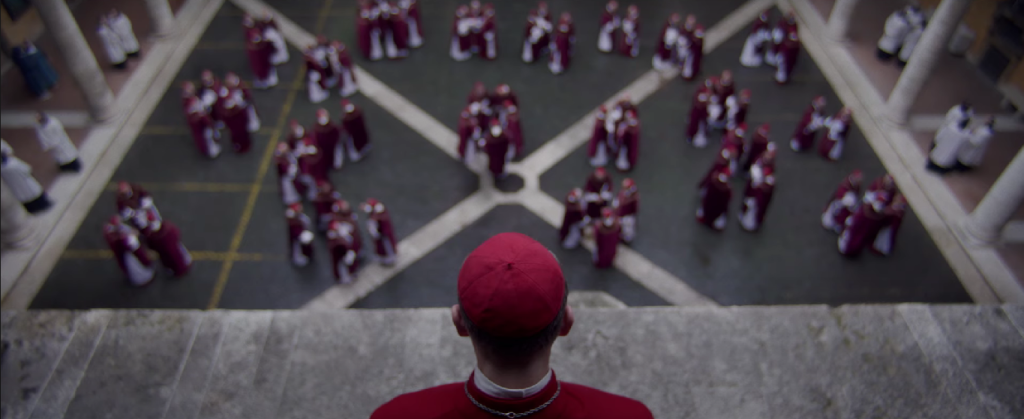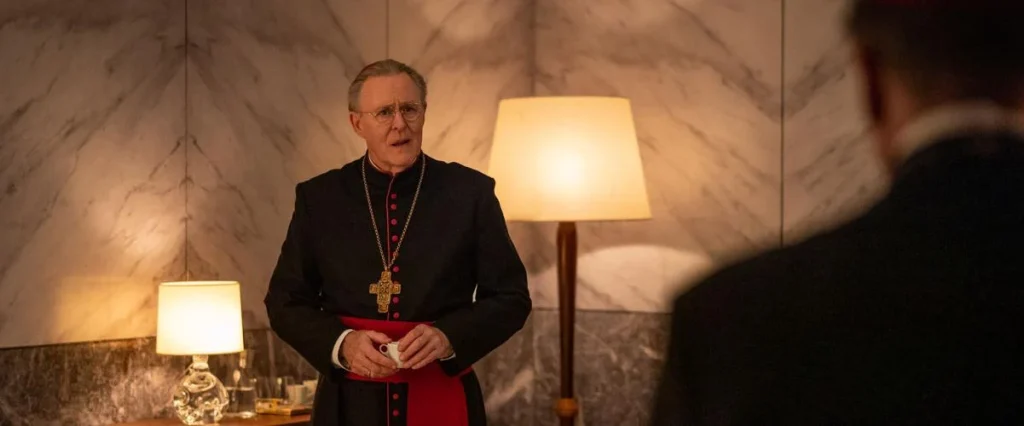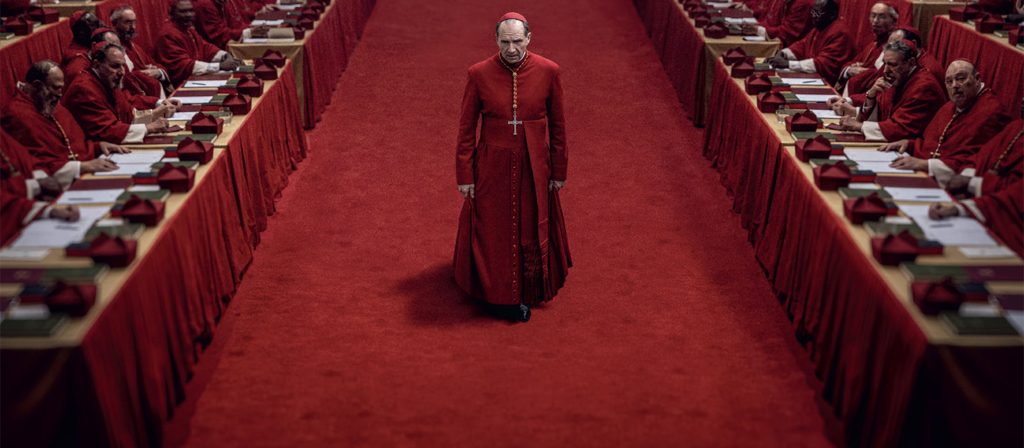
The Pope is dead. The Church is leaderless and behind the locked doors of the Chapel, 118 cardinals are sealed away, isolated from the world, bound by secrecy, and tasked with electing the next Pope. No contact. No interference. No escape. Only the weight of history pressing down on men who claim to be above politics, yet find themselves ensnared in it.
As the ritual unfolds, the façade of unity begins to crack. Not all votes are cast in good faith, and not all cardinals are who they seem. Old rivalries resurface, whispered deals are made in the shadows, and the battle between tradition and reform is fought in every silence, every exchanged glance, every carefully worded prayer. Some are here for change. Some are here to protect the past. And some—perhaps—are here for themselves.
Then, an unexpected revelation disrupts the process. What should have been a sacred, solemn affair shifts into something more uncertain, more precarious. The tension rises. Allegiances are tested. The true nature of power in the Vatican begins to show itself, and the question becomes impossible to ignore: Is this divine will at work, or just another struggle for control, wrapped in the robes of faith? And in the midst of all this political and theological maneuvering, Dean Cardinal Lawrence (Ralph Fiennes) finds himself uncovering secrets that could shake the very foundation of the Church.
Conclave sets the stage for an intricate, slow-burning battle of wills, but whether it delivers a gripping thriller or simply lingers in its own atmosphere remains to be seen. Will it offer a sharp, unsettling look at power and secrecy? Or will it become lost in its own solemnity?

When I first heard about Conclave, directed by Edward Berger and adapted from Robert Harris’s novel, my mind immediately went to The Two Popes (2019). That film tackled theological and ideological battles with remarkable wit and warmth, but Conclave promised something different—an intense, insular thriller set within the sacred and secretive world of the Vatican. And while it delivers on its premise, it does so in a way that is both mesmerizing and, at times, frustrating.
Edward Berger proves once again that he is a fantastic director—he knows how to get you invested in a story, how to paint a world for the audience to feel it, smell it, taste it, and get lost in all of its elements, visually, audibly, and narratively. His attention to detail is unparalleled, making every frame feel like a carefully composed painting, and that’s what most of us experienced in his masterpiece in the war genre “All Quiet On The Western Front”
Ralph Fiennes delivers a commanding yet restrained performance as Cardinal Lomeli. He portrays the burden of responsibility with a quiet intensity, making the character’s inner conflict deeply compelling. Supporting performances are equally strong, with John Lithgow and Stanley Tucci adding layers to the film’s ideological tug-of-war. Lucian Msamati, as Cardinal Adeyemi, serves as the film’s moral compass, though one could argue his presence fades in the third act, leaving us wondering if the film hesitated to fully explore his impact on the conclave’s outcome.
One of the unexpected delights of the film is its subtle humor scattered throughout. It never undercuts the gravity of the situation but instead provides brief moments of levity that make the tension even more effective.

The cinematography fully capitalizes on the brilliant, authentic production design, using an artistic touch in various frames and angles to sustain engagement even when the pacing wobbles. Low-angle shots emphasize the weight of religious authority, while overhead shots reduce figures to mere cogs in a larger system. The use of space is also masterful—vast, empty corridors emphasize isolation and secrecy, reinforcing the themes at play.
Paired with smooth editing, it feels like you are sailing down a quiet river with beautiful scenery on both banks, making you lose track of time yet sometimes when the stream stops, you start feeling it, till the boat starts moving again!
The sound design and production—including the use of strings at just the right moment—was masterfully crafted. The score is intentionally sparse, which might make it feel unmemorable to some, yet it remains understated and contributes directly to the viewing experience, subtly guiding our emotions through key moments. The silence before pivotal decisions is deafening, amplifying the weight of the conclave’s choices.
There is a common criticism about the authenticity of the conclave and papal procedure. Yet, given that this is a work of fiction—and that the topic remains shrouded in secrecy to this day—the film manages to strike a balance between artistic liberties and the insights gathered from real-life sources, particularly the notes taken by a cardinal in the book that inspired the film.
Dialogue occasionally leans into exposition, making some exchanges feel overly deliberate, though it generally remains engaging. This is a minor flaw in a script that otherwise handles its themes of tradition versus reform with intelligence and nuance.

By now, we know that Conclave is nominated for eight Academy Awards, and I believe it’s worthy of almost all of them. Maybe one nomination feels out of place, and one deserving recognition was left out—but I’ll leave that to your imagination. It becomes fairly obvious once you watch the film.
However, I can’t help but notice a recurring trend: when a movie revolves around religious controversy or debate, it often starts off epic, then wobbles toward the end, losing momentum or focus.
That’s precisely what happened in Heretic—a great build-up, a compelling conflict, and a plot that seemed to be leading somewhere specific. The film invests time and effort into constructing a path toward a particular reveal, and you can sense the trajectory taking shape. Then, just when you expect the film to deliver on that setup, it swerves completely off course, throwing something at you that wasn’t even on the radar. The result? A shocking conclusion, yes, but one that feels misaligned with everything the film had carefully laid out. Creating a shock effect is a powerful tool—it can leave audiences walking out of the theater with a lingering thought, a lasting impression—but it has to be rooted in the foundation the film has spent so much time building. Here, despite the fact that a certain outcome seemed inevitable, the film abandons that trajectory for a twist that, while unexpected, doesn’t feel entirely earned.
And just as Heretic was a brilliant half of a movie, Conclave is an exceptionally strong two-thirds of one. It carries itself with elegance, drawing the audience into a measured, absorbing rhythm. But then comes the final act—a bold shift that ends on a high note, yes, but one that feels jarringly out of sync. It’s like spending the evening immersed in the delicate compositions of Mozart, only to have the grand finale explode into disco. It’s unexpected—maybe even exciting in its own right—but the contrast is so stark that it makes you question whether the resolution truly honors the journey that led up to it.

Despite its minor flaws, Conclave lingers in your mind long after the credits roll. It’s a film that thrives on quiet intensity, captivating cinematography, and strong performances. While its ending may spark debate, its exploration of faith, power, and secrecy makes it a worthy watch—one that invites reflection as much as it does admiration.
Rating: ★★★★★★★★☆☆ (8/10)
